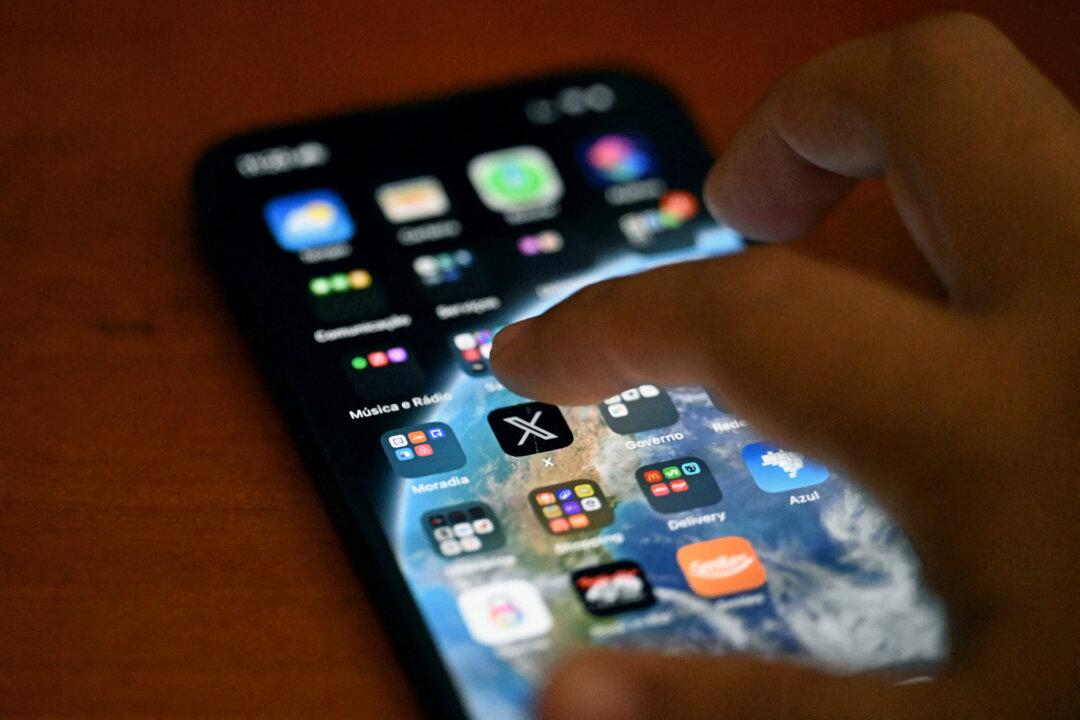China’s stranglehold on the battery market could be loosened with emerging technology that substitutes hard-to-source minerals with alternatives widely available in the West, such as sulfur, according to some U.S.-based manufacturers.
Over the past three decades, China has steadily maintained a grip on the production and manufacturing of every component of battery cells, the current lithium-ion batteries that are integral to modern societies.
Traditional lithium-ion batteries are made of three key components. A graphite anode, a lithium-based cathode, and an electrolyte made from lithium salts.
Lithium can be sourced from Australia, Chile, or Argentina. But the rest is mined, processed, and sourced from China.
Keith Norman, chief sustainability officer at the Silicon Valley start-up Lyten, told The Epoch Times that China has “definitely executed monopolies.”
New Generation
A 2024 report by the Carnegie Endowment for International Peace think tank argued that the U.S. policy response to the battery crisis must be the “urgent commercialization of next-generation technologies.”The report said that next-generation batteries represent a “fundamentally new architecture” compared with today’s lithium-ion batteries, leaving behind liquid components for a solid-state architecture and eliminating graphite, a material on whose production China “has a chokehold.”
US Sourced
Unlike traditional cells, Lyten’s lithium-sulfur batteries eliminate the need for nickel, manganese, or cobalt—critical minerals that Beijing dominates—and instead use sulfur and U.S.-sourced lithium metal.At present, the vast majority of battery-grade lithium is processed and manufactured in China.
Keith Norman said that lithium-sulfur is manufactured utilizing the same facilities, equipment, and processes as lithium-ion batteries.
He said that China has ramped up its strategy to be the global leader in batteries.
“They’ve made it very, very difficult for anybody else to be successful building lithium-ion batteries,” he added.
“This is a very real risk when you have supply chain dependency on one country and the geopolitics behind that as a huge risk,” he said.
He added that he has seen in the drone market that some U.S. drone makers have had their supply of batteries cut off.
Lyten is not alone in its mission to be independent of China materials.
The Boston-based Pure Lithium says that all the materials for its battery, including lithium brines and vanadium, are readily available in North America, eliminating the need for international supply chains.
Risky Business
Battery manufacturing is a risky business fraught with a long list of bankruptcies and a graveyard of failed ventures.In 2023, the United Kingdom battery start-up Britishvolt collapsed.
At the time, the BBC reported that Britishvolt had asked the government to advance 30 million pounds (about $41 million) of a promised 100 million pounds in support but was refused as the company had not hit agreed construction milestones to access the funds.
‘No One Can Be Certain’
But one critic warned that state-driven targets may backfire.Andy Mayer, energy analyst at the free market think tank the Institute of Economic Affairs, told The Epoch Times by email that the EU’s target for domestic battery production “is at best irrelevant” and that at worst, it “will encourage malinvestment in future business failures.”
“No one can be certain that Western innovation can’t displace Chinese dominance in battery technology, it’s just unlikely, and doubly so if linked to a bureaucratic central plan under political direction,” he said.
“China has advantages in access to raw materials, economies of scale, and a proven track record of fast following any temporary advantage from novel invention elsewhere.”
Or it could come from competition from other storage technologies such as sustainable biofuels, hydrogen, compressed air, gravity-based systems, and next-generation batteries, he said.
“These factors speak to the value of global IP partnerships and trade diversification,” he said.
“European producers would be better off finding the next rising power and doing deals. European consumers would gain from lower prices and better storage solutions.”
Some Western companies are turning to China rather than trying to beat it.
FEB claimed that it will also provide engineers and other support to help Volklec scale up production at the UK Battery Industrialisation Centre, a partly government-funded battery factory in Coventry.
Prevent China
Michael Rubin, a senior fellow at the American Enterprise Institute think tank and former Pentagon official, told The Epoch Times by email that the West needs to restrict Western supplies to China.“The United States should not approach strategic technology and resources as an either-or prospect,” he said.
“Sure, some technologists suggest a next generation of batteries could supplant the need for lithium. But until that happens, and so long as China seeks to corner the lithium trade, then the United States must seek to prevent China from accessing the technology or means to dominate us.”





